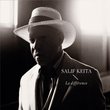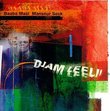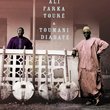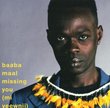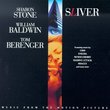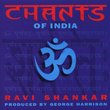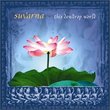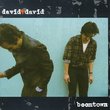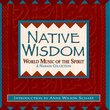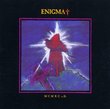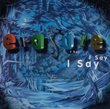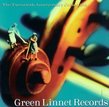| All Artists: Baaba Maal Title: Television Members Wishing: 0 Total Copies: 0 Label: Palm Pictures Original Release Date: 8/25/2009 Release Date: 8/25/2009 Genres: Dance & Electronic, International Music, Pop Styles: Electronica, World Dance, Africa Number of Discs: 1 SwapaCD Credits: 1 UPC: 660200214029 |
Search - Baaba Maal :: Television
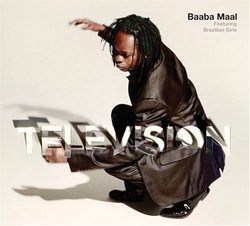 | Baaba Maal Television Genres: Dance & Electronic, International Music, Pop
|
Larger Image |
CD DetailsSimilar CDs
Similarly Requested CDs
|
CD ReviewsAfrican Contemporary J. Vanzyl | Santa Monica, CA USA | 10/20/2009 (5 out of 5 stars) "Having been raises in Africa, I reach back to roots and have a substantial collection of African music. I have to admit that while I enjoy live shows, I'm often not that into full albums and have many I seldom listen too. Not so with this effort from Baaba Maal .... its a wonderful blend of African and contemporary, with a perfect balance between Baaba & Sabina's voices. Tindo Quando is especially haunting. Be warned: You likely won't be able to stop listening!" It's His Career ... Giordano Bruno | Wherever I am, I am. | 04/21/2010 (3 out of 5 stars) "... and his success as a "world music" star speaks for itself, but I for one preferred the musical substance of Baaba Maal's much earlier CDs like 'Lam Toro' and 'Wango' from the 1990s. Then he was firmly engaged with the musical forms and traditions of Senegal, particularly of the Fulani, his own people, whose language he sings. This CD and most of his more recent performances are too generically African 'world beat' for my ears. So my three-star rating is totally personal, just my own taste. Born in 1953, Baaba Maal has had an interesting life and is entitled to some success by going his own way. He came from a village family of fishermen, not from a griot clan of traditional musicians, but he's not precisely 'self-trained'. His musical education includes formal conservatory studies. He has a lifelong friend, the blind griot Mansour Seck, who has sung on most of his recordings and who still accompanies him on tours. Mansour does little more these days than back-up vocals, but his mere presence adds an aura of humanity and tradition to Baaba Maal's stage performances. These days, Baaba Maal has a decidedly "rock star" stage presence, a bit of Mick Jagger or Bruce Springsteen about him, one moment brimming with enthusiasm but the next frowning with what looks a lot like disdain. He's become a "crowd stirrer" as much as a singer, and likewise his music has become a little monochromatically 'stirring', even when he sings a song with 'softness' implied in the lyrics. Using predominantly 'western' melodic instruments -- electric guitars and electric keyboard -- he has in effect jettisoned the scales and microtones of traditional Muslim African music. Likewise he employs a standard trap set of drums, like a jazz combo would, to frame his songs, while other members of his combo provide fireworks, physical virtuosity on the 'talking drums' and other African percussion. His drummers are very skilled, very exciting, but only on a momentary level. There's not really much 'musical thought' behind their virtuosity, or in Baaba Maal's current compositions." Fulani Tradition gone Awry I. Okhamafe | 12/27/2009 (1 out of 5 stars) "It just seems that with each CD, although he still sings in the Fulani language, Baaba Maal tends to forget his Fulani roots with keyboard-like music. I admit the music still has African beats, but without the Hoddu, the Nyanyoru, the Calabasse, the Acoustic and Classic Guitar all at work together I get a sense of him moving away from his roots to a more westernized/global music.
I am not trying to criticize his music, whatever works for him works. But I really like the traditional music that Baaba Maal used to sing in the early 80s (even before I was born), like his song that he dedicated to Umar Tall ancient leader of the Fouta Tooro. I'm a traditionalist." |

 Track Listings (8) - Disc #1
Track Listings (8) - Disc #1
